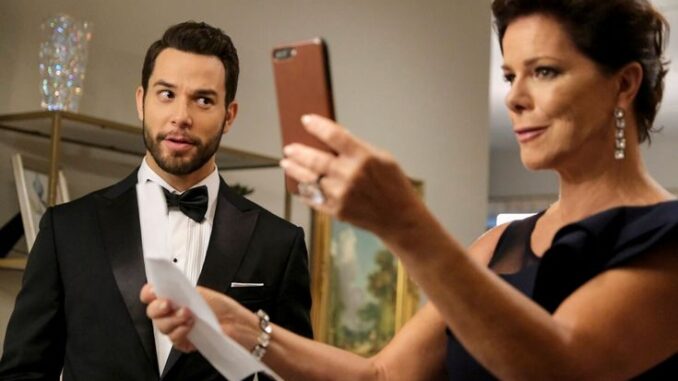
Beyond the Rainbow: Matthew Wilkas and the Subversive Normalcy of “So Help Me Todd”
Matthew Wilkas, a name synonymous with sharp wit and authentic performances, recently spoke about the refreshing subversion of queer stereotypes in the CBS legal dramedy, “So Help Me Todd.” His insights illuminate a crucial shift in how LGBTQ+ characters are being portrayed on mainstream television, moving beyond tired tropes and restrictive labels towards a more nuanced and relatable depiction of gay life. By examining Wilkas’ commentary, we can appreciate how “So Help Me Todd” contributes to a more inclusive and representative landscape, challenging preconceived notions and fostering genuine connection with a wider audience.
The traditional representation of LGBTQ+ characters on screen has often been burdened with specific narratives centered on coming out stories, struggles with identity, or flamboyant stereotypes. While these stories have their place, their dominance has often overshadowed the multifaceted reality of queer existence. Wilkas points out that “So Help Me Todd” avoids these pitfalls by simply presenting his character, Alex, as a fully realized individual who happens to be gay. He is a successful surgeon, a supportive friend, and a loving partner – his sexuality is a part of his identity, not the defining feature. This normalization is revolutionary in its quiet power. By simply showing a gay character living a relatively ordinary life, the show challenges the perception that queer individuals are inherently different or require a specific narrative arc defined by their sexuality.
Furthermore, Wilkas highlights the importance of moving beyond rigid “gay labels.” Often, LGBTQ+ characters are pigeonholed into pre-defined boxes, expected to adhere to certain behaviors, interests, and aesthetics. This can be limiting and ultimately reinforces stereotypes, preventing audiences from seeing the diversity within the queer community. “So Help Me Todd” breaks free from this constraint by portraying Alex as someone who doesn’t fit neatly into any pre-existing category. He is intelligent and driven, but also possesses a relatable vulnerability and a dry sense of humor. His personality extends beyond his sexual orientation, showcasing the richness and complexity of his character. This fluidity allows viewers, regardless of their own identities, to connect with Alex on a human level, fostering empathy and understanding.
The significance of this approach lies in its potential to reach a broader audience. When queer characters are depicted solely through the lens of their sexuality, they can become relegated to a niche category, alienating viewers who don’t identify as LGBTQ+. However, by presenting characters like Alex as well-rounded individuals with relatable struggles and aspirations, “So Help Me Todd” invites everyone to participate in their story. This inclusivity is not just about representation; it’s about building bridges between different communities and fostering a sense of shared humanity.
Moreover, the normalization of queer relationships in the show contributes to a more accepting and tolerant society. Alex’s relationship with his partner is depicted with the same warmth and complexity as any heterosexual relationship on screen. They navigate everyday challenges, support each other through difficult times, and share moments of genuine affection. By portraying this normalcy, “So Help Me Todd” subtly challenges the notion that LGBTQ+ relationships are inherently different or less valid than heterosexual ones. This subtle yet powerful message has the potential to shape societal attitudes and promote greater acceptance of queer families and relationships.
In conclusion, Matthew Wilkas’ insights into the portrayal of queer characters in “So Help Me Todd” offer a valuable perspective on the evolving landscape of LGBTQ+ representation in mainstream media. By moving beyond tired stereotypes and rigid labels, the show fosters a more nuanced and relatable depiction of gay life, promoting inclusivity and understanding. The subversive normalcy of characters like Alex, and the emphasis on their individuality beyond their sexuality, allows viewers to connect with them on a human level, ultimately contributing to a more accepting and tolerant society. “So Help Me Todd” demonstrates that true progress lies not just in visibility, but in the ability to see queer characters as fully realized individuals, whose stories are just as diverse and compelling as anyone else’s.
